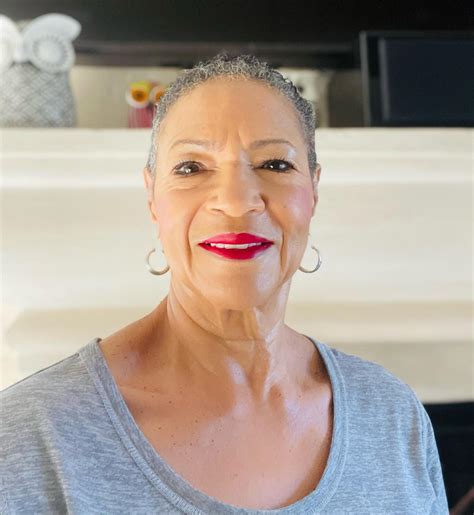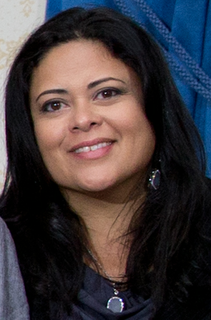A Quote by Robert Darnton
We need librarians who can handle this tremendous jumble of information that is in cyberspace.
Quote Topics
Related Quotes
Children know that if they have a question about the world, the library is the place to find the answer. And someone will always be there to help them find the answer-our librarians. (A librarian's) job is an important one. Our nation runs on the fuel of information and imagination that libraries provide. And they are in charge of collecting and sharing this information in a helpful way. Librarians inform the public, and by doing so, they strengthen our great democracy.
In tight economic times, with libraries sliding farther and farther down the list of priorities, we risk the loss of their ideals, intelligence, and knowledge, not to mention their commitment to access for all—librarians consider free access to information the foundation of democracy, and they’re right. Librarians are essential players in the information revolution because they level that field. They enable those without money or education to read and learn the same things as the billionaire and the Ph.D…In tough times, a librarian is a terrible thing to waste.
For years, we've been bludgeoned with the cliche "information is power." But information isn't power. After all, who's got the most information in your neighborhood? Librarians. And they're famous for having no power at all. And who has the most power in your community? Politicians. And they're notorious for being ill-informed.
Such compression of large amounts of information into a few exformation-rich macrostates with small quantities of nominal information are not only intelligent: they are very beautiful: yes, even sexy. Seing a jumble of confused data and shreds of rote learning compressed into a concise, clear message can be a real turn-on.
I think that in an age where so much information is flying through cyberspace, we all have to be aware of the fact that some information which is sensitive, which does affect the security of individuals and relationships, deserves to be protected and we will continue to take necessary steps to do so.
I don't think we should have less information in the world. The information age has yielded great advances in medicine, agriculture, transportation and many other fields. But the problem is twofold. One, we are assaulted with more information than any one of us can handle. Two, beyond the overload, too much information often leads to bad decisions.
In cyberspace, we get many fewer cues about the emotional states and attitudes of the people we're talking to. That makes it less interesting, easier to mis-communicate, and more likely to destroy trust. So you need to treat cyberspace with care, especially being aware of the fragile nature of trust in the virtual world.







































